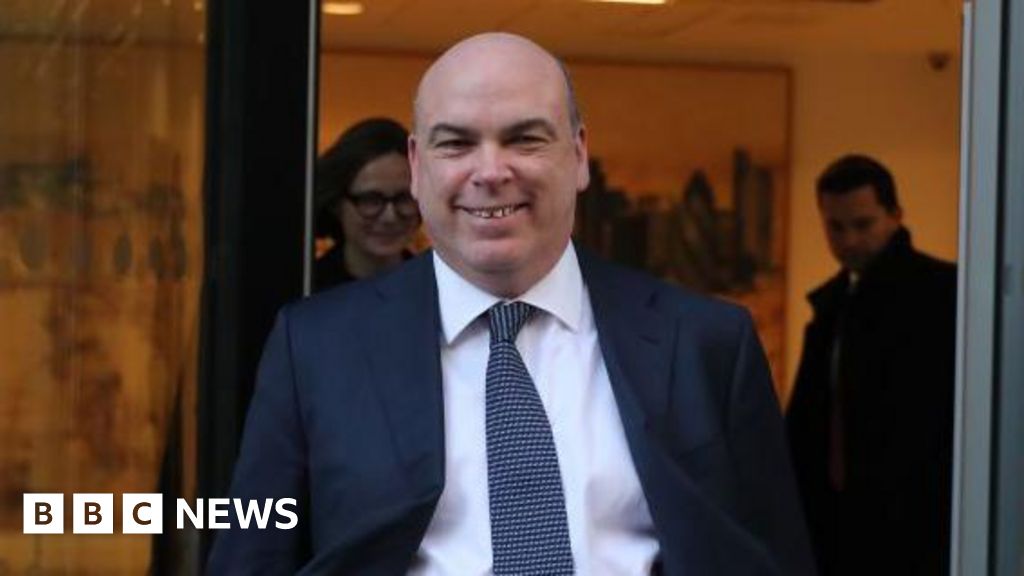British businessman Mike Lynch, acquitted in the US of multi-billion pound fraud charges this June, has raised concerns about the accessibility of justice for those without substantial wealth.
The 59-year-old, who faced two decades in prison if convicted on 17 charges related to the sale of his tech company, Autonomy, to Hewlett-Packard (HP), told BBC Radio 4 that he believes his acquittal was only possible due to his immense wealth. He asserted that he could afford the exorbitant legal fees necessary to defend himself against the accusations.
"You shouldn't need to have funds to protect yourself as a British citizen," Lynch stated, highlighting the disparity in access to legal representation. "The reason I'm sitting here, let's be honest, is not only because I was innocent⦠but because I had enough money not to be swept away by a process that's set up to sweep you away."
Lynch argued that most people, even after selling all their assets, would be left financially destitute within months due to the costs of legal battles, a situation he believes "has to change."
The Autonomy Saga: A Complex History
Lynch co-founded Autonomy in Cambridge in 1996, which quickly rose to become one of the UK's leading tech firms. The company's success led to Lynch being dubbed "Britain's Bill Gates."
In 2011, HP acquired Autonomy for $11 billion (£8.6 billion), a deal that yielded Lynch a personal fortune of £500 million. However, the acquisition soon faced scrutiny, with questions arising about the hefty price tag.
Just a year later, HP wrote down the value of Autonomy by $8.8 billion, claiming Lynch had exaggerated the company's value. This triggered years of legal battles culminating in the US prosecution of Lynch in 2018.
Prosecutors accused Lynch of inflating Autonomy's value through backdated agreements and concealing loss-making business practices. They also alleged that he intimidated and bribed individuals who raised concerns about the company's financial state.
Despite Lynch's protests and attempts to resist extradition, he was ultimately extradited to the US in 2022 to face trial.
Acquitted, but Not Without Criticism
The trial, which culminated in Lynch's acquittal this June, saw him testify that he was not involved in the transactions being described by the prosecution. His legal team argued that HP had failed to conduct proper due diligence before the acquisition.
Stephen Chamberlain, a former finance executive at Autonomy, was also found not guilty.
Lynch, describing the moment he awaited the verdict as "indescribable," likened it to standing "between two universes." Despite the acquittal, Lynch expressed criticism of the UK government for allowing his extradition under a treaty that he, among others, believes makes it too easy for British citizens to be tried in the US.
"The British government needs to defend its citizens," he stated. "Is it right to be sending someone to another country, especially one which has the justice system issues of the US? A US prosecutor has far more control over you than your local bobby in the British system."
Looking Ahead: Innovation and Legal Reforms
The charges against Lynch are not the only legal proceedings arising from the sale of Autonomy. In 2019, Sushovan Hussain, Autonomy's former CFO, was sentenced to five years in prison and fined millions of dollars for fraud and securities fraud.
In 2022, HP won a civil fraud case against Lynch and Hussain in the London High Court, seeking a reported $4 billion in damages. Lynch attributed this victory to the judge's reliance on untested evidence from the US.
However, despite the ongoing legal battles, Lynch expressed his desire to refocus on his career in tech, drawing inspiration from his recent experiences to explore the potential of AI in legal fields and hearing loss solutions.
"I want to get back to what I love doing, which is innovating," he said.
The Autonomy saga has undoubtedly raised important questions about the fairness of the US justice system, the limitations of extradition treaties, and the role of wealth in accessing legal representation. As Lynch moves forward, the legal landscape around this complex case remains in flux, with potential implications for future legal battles.
Article
Business

Mike Lynch: Justice for the Rich?

